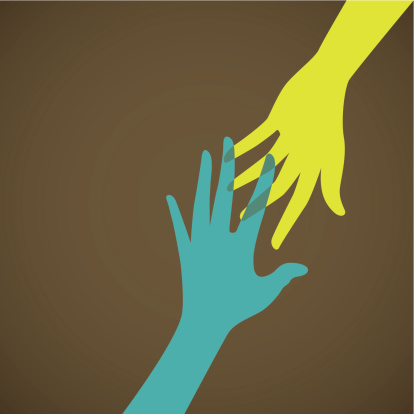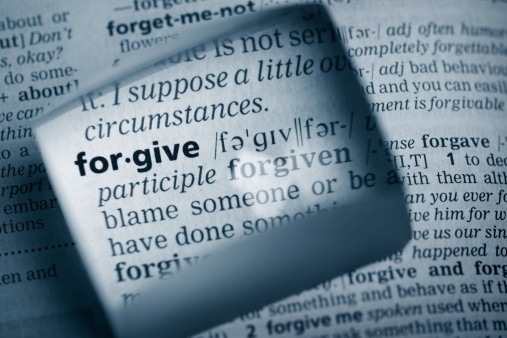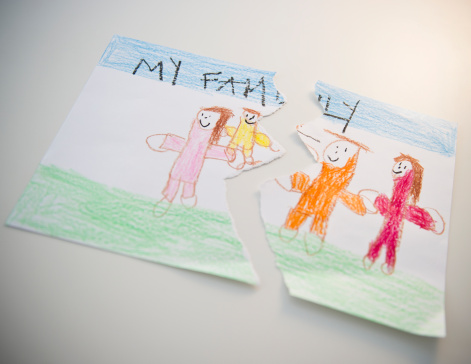
I recently attended a symposium about divorce entitled, “What’s Love Got to Do With It?” At first glance you might wonder whether we had anything to talk about. What do love and divorce have in common? Isn’t divorce the result of the loss of love? Sharing ideas with others interested in improving the divorce process reinforced my belief that love, forgiveness and compassion are the keys to divorcing well, and that divorce can indeed be a healing process.
Divorce is an all-too-common event these days. We all have friends, family members, neighbors and co-workers who have experienced becoming
unmarried. Some just barely survive and are stuck looking back at their divorce with regret and resentment. Years later they continue to bad-mouth their ex and blame their divorce for their ongoing unhappiness. Their inability to be present and available has long-term consequences for their children as well.
Most of us also know people who not only survive, but thrive in their post-divorce lives. They are somehow able to accept the major changes in their day-to-day lives and move forward. By doing so, they are healthy role models for their children and fun to be around. What accounts for these vastly different outcomes?
Personality certainly has something to do with it. Some humans are blessed with more optimistic outlooks than others. Seeing the glass half full reduces anxiety about the future. Life circumstances also play a role. Good health, steady employment, and a healthy balance sheet contribute to feeling better about what lies ahead. However, several decades of experience tells me that one factor trumps everything else in terms of one’s ability to recover from divorce … the ability to forgive.
Anger, bitterness, blame and resentment are feelings associated with the loss of a loving relationship. Grieving the loss is necessary in order to get on with life. Tara Brach, a leading western teacher of Buddhist meditation, emotional healing and spiritual awakening, who was a symposium presenter, says, “Vengeance is a lazy form of grief.” Rather than being lazy and stuck, working through one’s grief with a therapist, clergy person, or trusted friend can lead to understanding and forgiveness. Acknowledgment and forgiveness of one’s own contributions to the divorce are essential, as is forgiveness of the other person.
In the
Collaborative divorce process, our
professional team includes a neutral coach and a child specialist, both of whom assist the parties in reaching closure with regard to their marriage and defining their future co-parenting relationship.
“When you forgive somebody who has wronged you, you’re spared the dismal corrosion of bitterness and wounded pride. For both parties, forgiveness means the freedom again to be at peace inside their own skins and to be glad in each others’ presence.”
-Fredrick Buechner
 “Many promising reconciliations have broken down because, while both parties came prepared to forgive, neither party came prepared to be forgiven.” – Charles Williams, British author and translator
I recently came across this quote about forgiveness and reconciliation and it reminded me of the collaborative divorce process. I am a collaborative attorney. I often see couples enter into the divorce process with ideas about forgiveness. I often see clients come into the divorce process hoping to end the anger or negative feelings. They may want to make things better for the sake of the children or to feel better themselves, whatever the reason, forgiveness can be one of the most impactful elements of divorce.
To forgive is to stop feeling anger toward someone who has done something wrong or to stop blaming someone. In divorce, forgiveness may revolve around infidelity or poor financial management or lessening attraction for another. Emotionally clients often prepare to own their own feelings. They may have considered the benefits of forgiving the other and moving forward in a more positive manner.
Like the quote above implies, it is often easier to think about forgiving someone else. When someone is forgiven himself or herself, however, it may be tougher to accept. The selflessness of the other during the challenging process of divorce can sometimes be overwhelming. Genuine forgiveness may be unexpected. It can lead to breakthrough moments and opportunities to dig deeper to find more compassionate and amicable resolutions.
Forgiveness and divorce are intertwined. The collaborative divorce process is designed and supported to allow the greatest opportunities for forgiveness and peacemaking.
“Many promising reconciliations have broken down because, while both parties came prepared to forgive, neither party came prepared to be forgiven.” – Charles Williams, British author and translator
I recently came across this quote about forgiveness and reconciliation and it reminded me of the collaborative divorce process. I am a collaborative attorney. I often see couples enter into the divorce process with ideas about forgiveness. I often see clients come into the divorce process hoping to end the anger or negative feelings. They may want to make things better for the sake of the children or to feel better themselves, whatever the reason, forgiveness can be one of the most impactful elements of divorce.
To forgive is to stop feeling anger toward someone who has done something wrong or to stop blaming someone. In divorce, forgiveness may revolve around infidelity or poor financial management or lessening attraction for another. Emotionally clients often prepare to own their own feelings. They may have considered the benefits of forgiving the other and moving forward in a more positive manner.
Like the quote above implies, it is often easier to think about forgiving someone else. When someone is forgiven himself or herself, however, it may be tougher to accept. The selflessness of the other during the challenging process of divorce can sometimes be overwhelming. Genuine forgiveness may be unexpected. It can lead to breakthrough moments and opportunities to dig deeper to find more compassionate and amicable resolutions.
Forgiveness and divorce are intertwined. The collaborative divorce process is designed and supported to allow the greatest opportunities for forgiveness and peacemaking.
 “Many promising reconciliations have broken down because, while both parties came prepared to forgive, neither party came prepared to be forgiven.” – Charles Williams, British author and translator
I recently came across this quote about forgiveness and reconciliation and it reminded me of the collaborative divorce process. I am a collaborative attorney. I often see couples enter into the divorce process with ideas about forgiveness. I often see clients come into the divorce process hoping to end the anger or negative feelings. They may want to make things better for the sake of the children or to feel better themselves, whatever the reason, forgiveness can be one of the most impactful elements of divorce.
To forgive is to stop feeling anger toward someone who has done something wrong or to stop blaming someone. In divorce, forgiveness may revolve around infidelity or poor financial management or lessening attraction for another. Emotionally clients often prepare to own their own feelings. They may have considered the benefits of forgiving the other and moving forward in a more positive manner.
Like the quote above implies, it is often easier to think about forgiving someone else. When someone is forgiven himself or herself, however, it may be tougher to accept. The selflessness of the other during the challenging process of divorce can sometimes be overwhelming. Genuine forgiveness may be unexpected. It can lead to breakthrough moments and opportunities to dig deeper to find more compassionate and amicable resolutions.
Forgiveness and divorce are intertwined. The collaborative divorce process is designed and supported to allow the greatest opportunities for forgiveness and peacemaking.
“Many promising reconciliations have broken down because, while both parties came prepared to forgive, neither party came prepared to be forgiven.” – Charles Williams, British author and translator
I recently came across this quote about forgiveness and reconciliation and it reminded me of the collaborative divorce process. I am a collaborative attorney. I often see couples enter into the divorce process with ideas about forgiveness. I often see clients come into the divorce process hoping to end the anger or negative feelings. They may want to make things better for the sake of the children or to feel better themselves, whatever the reason, forgiveness can be one of the most impactful elements of divorce.
To forgive is to stop feeling anger toward someone who has done something wrong or to stop blaming someone. In divorce, forgiveness may revolve around infidelity or poor financial management or lessening attraction for another. Emotionally clients often prepare to own their own feelings. They may have considered the benefits of forgiving the other and moving forward in a more positive manner.
Like the quote above implies, it is often easier to think about forgiving someone else. When someone is forgiven himself or herself, however, it may be tougher to accept. The selflessness of the other during the challenging process of divorce can sometimes be overwhelming. Genuine forgiveness may be unexpected. It can lead to breakthrough moments and opportunities to dig deeper to find more compassionate and amicable resolutions.
Forgiveness and divorce are intertwined. The collaborative divorce process is designed and supported to allow the greatest opportunities for forgiveness and peacemaking.




 I heard an advertisement on the radio this morning for a litigating divorce attorney. This attorney discussed the importance of removing the emotion from divorce and treating the divorce itself as a business transaction. I understood her point – emotions can be messy or interfere with rational decision making. However, emotion is often the biggest part of divorce. Or, it often feels that way to clients.
How can we ask clients to strip that piece out of the process? Rather, as a collaborative attorney, I believe that emotion can be used to healthily guide clients to mutually agreeable resolutions that have long-term staying power. I embrace the opportunity to take the client where they are at – emotions and all – and guide them towards resolution. Engaging a mental health professional or coach in the process can sometimes be the greatest asset provided to clients and allow them to balance the emotions with the necessary business-like decisions.
Treating a divorce as a business transaction often leads to client’s making decisions for purely financial reasons. Using emotions and feelings of fairness or equity may lead to clients feeling as if the resolutions more completely address their needs.
For example, if one spouse cheated on the other, an emotional response of anger or vindication may lead to the hurt spouse to ask for more financial pay-out. This sort of punitive outcome is not supported in the law and rarely agreed to out-of-court. However, if the parties have a co-parenting relationship or more emotional needs, a purely business-like interaction may never address some of the underlying emotions. Facilitating a discussion about how both parties are feeling and what they may need in order to move forward may been more beneficial to the clients than any financial resolution. Some clients want an apology or a better understanding of why something happened. Others may need to put in effort to establish a shared narrative or story for others.
The finances matter – sometimes most of all. The collaborative process embraces the financial side of divorce, but also allows for a more holistic and complete approach that can address emotions, if the clients so desire.
I heard an advertisement on the radio this morning for a litigating divorce attorney. This attorney discussed the importance of removing the emotion from divorce and treating the divorce itself as a business transaction. I understood her point – emotions can be messy or interfere with rational decision making. However, emotion is often the biggest part of divorce. Or, it often feels that way to clients.
How can we ask clients to strip that piece out of the process? Rather, as a collaborative attorney, I believe that emotion can be used to healthily guide clients to mutually agreeable resolutions that have long-term staying power. I embrace the opportunity to take the client where they are at – emotions and all – and guide them towards resolution. Engaging a mental health professional or coach in the process can sometimes be the greatest asset provided to clients and allow them to balance the emotions with the necessary business-like decisions.
Treating a divorce as a business transaction often leads to client’s making decisions for purely financial reasons. Using emotions and feelings of fairness or equity may lead to clients feeling as if the resolutions more completely address their needs.
For example, if one spouse cheated on the other, an emotional response of anger or vindication may lead to the hurt spouse to ask for more financial pay-out. This sort of punitive outcome is not supported in the law and rarely agreed to out-of-court. However, if the parties have a co-parenting relationship or more emotional needs, a purely business-like interaction may never address some of the underlying emotions. Facilitating a discussion about how both parties are feeling and what they may need in order to move forward may been more beneficial to the clients than any financial resolution. Some clients want an apology or a better understanding of why something happened. Others may need to put in effort to establish a shared narrative or story for others.
The finances matter – sometimes most of all. The collaborative process embraces the financial side of divorce, but also allows for a more holistic and complete approach that can address emotions, if the clients so desire. 


